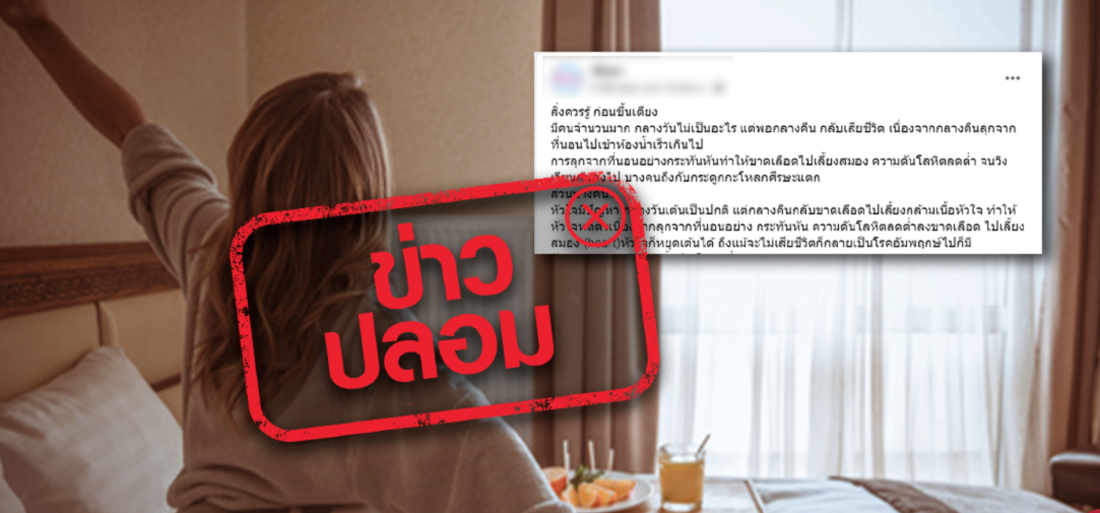
Facebook posts mislead on 'stroke dangers' for people 'getting out of bed too quickly'
- This article is more than four years old.
- Published on April 20, 2021 at 08:00
- 2 min read
- By AFP Thailand
The purported health notice was posted on Facebook on March 9, 2021. The post has been shared more than 600 times.
The Thai-language post translates to English in part as: “A lot of people die at night when they get up too quickly from the bed because getting up from the bed too quickly will lead to stroke and low blood pressure.
"It might be so bad that you can have an injury in your skull and heart problems because you got up from the bed too quickly.”

An identical warning was also shared in Facebook posts here, here, here and here.
Comments to the posts indicate people were misled by the message.
One Facebook user wrote: “Not everybody is aware of this information, it’s beneficial, we should practice this more often, please let me share this.”
But the posts are misleading, according to health experts.
“Healthy people have an autonomic nervous system that controls the blood pressure level enough to pump your blood,” Dr. Chonpivat Treepong, a neurologist at the Neurological Institute of Thailand under the Ministry of Public Health, told AFP in an interview on April 7, 2021.
“But the elderly, and those with congenital diseases such as Parkinson’s or diabetes might have abnormal autonomic nervous systems, that can cause some problems. Mostly, however, the problems will be caused by accidents when falling rather than any diseases.”
Thailand’s Anti-Fake News Centre, a government-run platform, urged social media users not to share the misleading Facebook posts.
The agency said some people may feel faint or dizzy when changing positions abruptly -- but this would generally not cause the heart to stop.
“Such information is not true," the agency said in a statement posted online on March 16, 2021. "The body has a mechanism that adjusts the autonomic nervous system, blood pressure and heart rate so that we can carry out activities normally even when we change our movements suddenly.”
The agency shared a graphic of the misleading Facebook post overlaid with text that states: “Fake news: don’t share!”

Copyright © AFP 2017-2026. Any commercial use of this content requires a subscription. Click here to find out more.
Is there content that you would like AFP to fact-check? Get in touch.
Contact us
